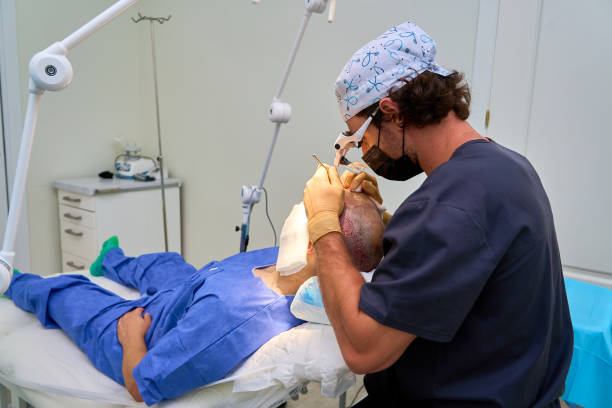Hair loss can start at almost any age, leading many to consider hair restoration treatments. But one common question remains: what age is best for a hair transplant? While modern hair transplant techniques offer impressive, natural-looking results, determining the right time to undergo the procedure is crucial for its long-term success. In this article, doctors share their professional insights to help you understand the ideal age, important factors to consider, and how timing plays a critical role in your hair restoration journey.
What Doctors Say About the Ideal Age
Most hair transplant specialists agree that the ideal age for a hair transplant is typically between 25 and 40 years old. At this stage, hair loss patterns have usually stabilized, making it easier for doctors to assess the appropriate transplant strategy.
Why Age Matters
- Predictable Hair Loss Patterns: Younger individuals may still be experiencing progressive hair loss, which could result in uneven results if a transplant is performed too early.
- Mature Hairline Planning: Doctors can better design a natural and age-appropriate hairline when the patient’s final hair loss pattern is clearer.
- Emotional Readiness: Patients in this age group often have more realistic expectations and a better understanding of the long-term commitment.
Too Young or Too Old? Age Factors to Consider
Under 25: Proceed with Caution
While it may be tempting to seek a solution early, many clinics discourage patients under 25 from pursuing hair transplants. Hair loss at this age is usually ongoing and unpredictable. Non-surgical alternatives such as medications or PRP therapy may be recommended instead.
Over 40: Still a Viable Option
Older individuals can still be excellent candidates, especially if their hair loss has stabilized. However, doctors will evaluate donor hair quality, skin elasticity, and overall health to determine eligibility.
Benefits of Waiting Until the Right Age
Waiting until the ideal age ensures:
- Long-lasting, natural results
- Better graft placement and density
- Fewer future procedures
- Improved psychological readiness
Additionally, patients benefit from clearer expectations and a more mature perspective on post-operative care.
Exceptions & Special Considerations
There are exceptions to every rule. If hair loss is caused by trauma, surgery, or a medical condition, even younger patients may be eligible for hair restoration. Likewise, older patients in good health with stable hair loss patterns may also see successful results.
Doctors often recommend:
- A full medical and scalp evaluation
- Review of family hair loss history
- Assessment of long-term hair loss progression
Regional Expertise: Why Location Matters
In cities known for advanced hair restoration services, patients have access to top-tier specialists. If you’re considering expert services, you may want to explore hair transplant london for experienced professionals, state-of-the-art facilities, and tailored care that aligns with your age and hair loss pattern.
Conclusion & Takeaway
So, what age is best for a hair transplant? While the optimal range is generally between 25 and 40, the right age ultimately depends on your unique hair loss journey. The key is to consult with a qualified specialist who can evaluate your condition, understand your goals, and guide you through the process safely and effectively. Remember, waiting for the right time can make all the difference in achieving long-lasting, natural results.



